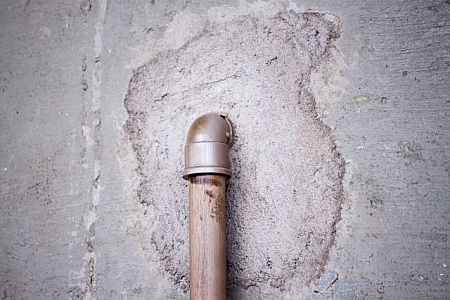For very old homes with original plumbing, or if your plumbing has been exposed to damaging elements they could show some rust or corrosion.
While plumbing usually lasts for the life of your home, parts of your system may need attention from a plumber who can assess the situation and tell you if you need to replace your plumbing. So what should you watch for in your home’s plumbing?
Is your tap water smelly?
Water should never have a foul odor. If the water has any type of smell, then this is a sign that bacteria may have started to build up in your pipes, and this could precipitate some pipe replacement.
What are your pipes made of?
Most modern pipes are made out of copper, brass or PVC. However, regardless of the type of material the pipe is made out of, it will need to be replaced at some point. You can use the age of your home to gauge if a pipe needs to be replaced.
PVC pipes are newer and many installations are going strong since they were first used regularly in new homes in the 1970’s. The expected lifespan of PVC is 50 to 70 years, but studies have shown it could be longer. Copper pipes can last 70 to 80 years. Brass pipes can last 80 to 100 years. Most homes have some combination of materials for different parts of the plumbing system.
Notice any leaks or cracks?
Sometimes it’s difficult to find pinhole leaks when they are inside a wall. However, if you do notice if there is a leak, at least part of your plumbing will need attention. It’s usually not a big project to replace a section of copper or PVC pipe inside a wall.
Water discoloration
Unless you live in a rural area and use well water, or have been advised to boil your public water, it should not be discolored. Dark brown water might be the result of the rust and corrosion inside of your pipes.Mineral deposits in areas with hard or mineral-laden water can also clog pipes or increase the pressure inside of the pipes causing them to burst.
Low water pressure
If the water pressure drops while you are taking or shower or using your sink, In many cases, low water pressure is caused by a clog, but it’s also possible that a faulty section of plumbing is the culprit.
Lead pipes
Lead as an ingredient in the solder used to join copper pipes was restricted in the 1980’s, and many homes and businesses have legacy lead pipes carrying water from the public supply into the home, especially in urban areas. If your home was built after 1950, it’s much less likely that you have any interior lead pipes. It may still be wise to check the lead levels in your tap water and look into the possibility that lead could be present because of your plumbing. If the test shows a level of more than 15 ppb (parts per billion), call in an expert to assess the situation.
Henry Plumbing wants to help make your home’s water system as healthy as possible. Call us with any questions about whether or not you need to replace your plumbing or any other water-system related question.


